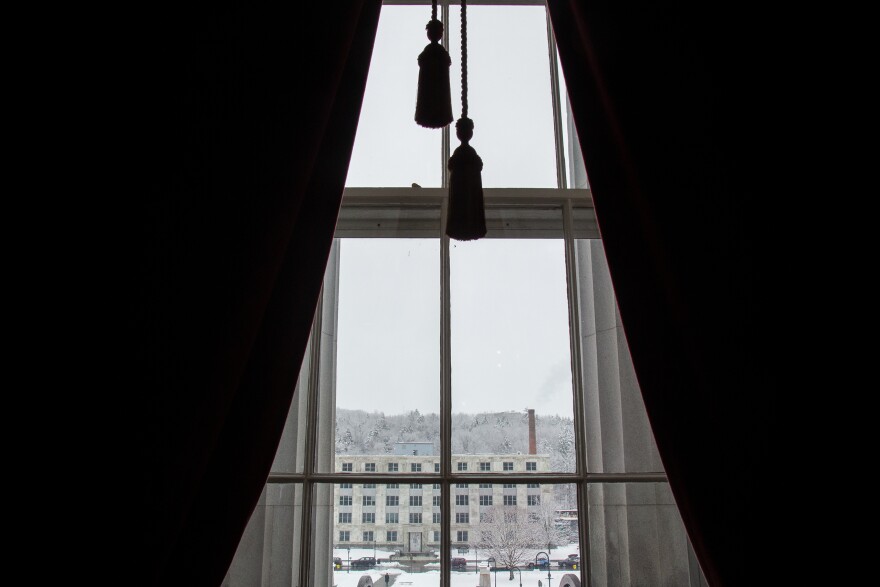A state-funded effort has begun to document how Vermont state laws and policies have discriminated against marginalized communities, including people with disabilities, Black people, Indigenous people, other people of color and people of French Canadian heritage.
It came out of legislation passed last year that created a Truth and Reconciliation Commission to seek ways to repair harm caused by the state of Vermont.
In a press conference Friday morning, a selection panel announced the commissioners who will lead the effort over the next three years as full-time state employees:
- Mia Schultz, president of the Rutland-Area NAACP
- Melody Walker Mackin, an artist, educator, member of the Vermont Commission on Native American Affairs and citizen of the state-recognized Elnu tribe
- Patrick Standen, professor at St. Michael’s College and leader in Vermont’s disability community
The new commissioners stressed their roles include making policy recommendations, as well as hearing experiences of communities who suffered injustices.
“We know this is not about what has just happened in the past,” Schultz said. “This is about how that past continues and is perpetuated in our present, and how we’ll learn from it, and eradicate it in our future.”
They’ll have an annual budget of almost $750,000, and will hire an executive director and other researchers.
“First, we're tasked with starting an office — there’s nothing like this that’s been done before,” Schultz said. “We are starting from scratch.”
"It's a huge task," Melody Walker Mackin said.
A commission with more limited scope was created in Maine to document the state's child welfare practice with Wabanaki people, and Burlington City Council created a Reparations Task Force in 2020, but the new commissioners said they're not familiar with any mandate that's so broad in scope.
"While it may look overwhelming, it's essential that all voices by heard," Standen said. "The resources that are provided by the state at this point seem to be ample and welcomed."
Lexi Krupp is a corps member for Report for America, a nonprofit national service program that places journalists in local newsrooms to report on under-covered issues and regions.




